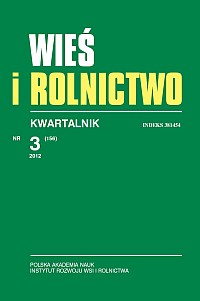What effect does national regulation have on LEADER programming in the EU-27?
What effect does national regulation have on LEADER programming in the EU-27?
Author(s): Pascal ChevalierSubject(s): Economy
Published by: Instytut Rozwoju Wsi i Rolnictwa Polskiej Akademii Nauk
Keywords: public action; LEADER programme; Europe; model transfer; norms
Summary/Abstract: The LEADER programme, introduced in 1991 and integrated into the European policy for rural development, is a figurehead of local action in Europe. Based on local partnerships, gathering entrepreneurs, elected representatives and associates on a voluntary basis, it will exemplify the principles of co-operation and subsidiarity and so contribute to the strengthening of local democracy. Researchers and development practitioners agree on its innovative character and its potential of “portability” in the fact that it offers to each State a certain freedom in its application. Each country of the European Union can decline the objectives according to the priorities that it settles and has a wide latitude on how it places financial means and the modalities of its implementation. In this article, we focus on the modalities of the LEADER programme transfer (2007-2013) to all 27 EU member states. In this article, we focus on the territorial effects of terms of the transfer of the LEADER programme (2007-2013) to all 27 Member States of the EU.
Journal: Wieś i Rolnictwo
- Issue Year: 156/2012
- Issue No: 3
- Page Range: 9-29
- Page Count: 21
- Language: English

